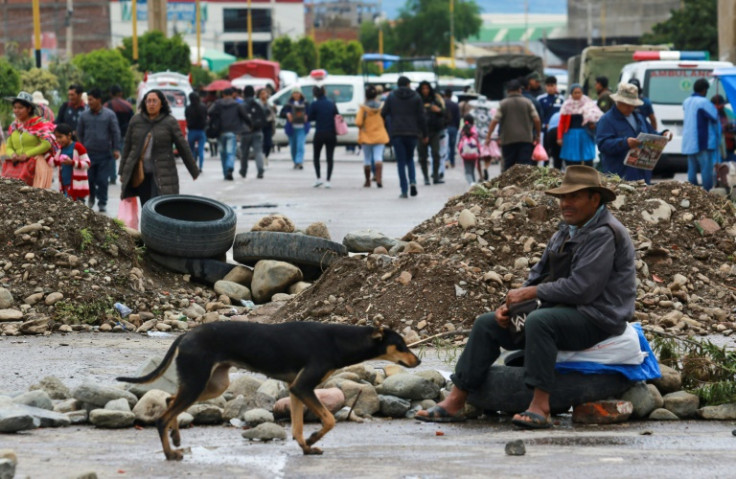
Thousands of supporters of former president Evo Morales who had blocked roads in Bolivia for the past two weeks over his disqualification from 2025 elections ended their demonstrations Tuesday after some of their political demands were met.
The protesters, led by coca growers -- the mainstay of Morales' political base -- blocked up to 36 roads at times, cutting off travel between the major cities of La Paz and Santa Cruz.
The demonstrators were demanding the resignation of the country's Constitutional Court judges who disqualified Morales from running for reelection in 2025 on the basis that he had reached his term limit.
The demonstrators had additionally demanded that judges on the country's main courts, including the Constitutional Court, be elected by popular vote.
On Tuesday, President Luis Arce announced a law providing for the election of the 26 judges in Bolivia's highest courts, within 230 days.
According to the country's state highway agency, the roadblocks were lifted as of Tuesday.
Most of the blockades had been in the Cochabamba department, the cradle of Morales' political power.
Morales, Bolivia's first Indigenous president, took office in 2006 and was extremely popular until he tried to bypass the constitution and seek a fourth term in office in 2019.
The leftist and former coca union leader won that vote but was forced to resign amid deadly protests over alleged election fraud, and fled the country.
He returned after his ally-turned-foe Arce won the presidency in October 2020.
Meanwhile in December of last year, Bolivia's Constitutional Court made its ruling that set off the roadblock demonstrations: It reversed a decision that had let Morales seek a fourth term in 2019, thereby disqualifying him from running for reelection in 2025.
The blockades caused losses in excess of $982 million to the Bolivian economy, according to Deputy Minister of Communications Gabriela Alcon.
The Ministry of the Interior reported that 71 police officers were injured and 21 demonstrators were arrested during clashes at the blockades.







